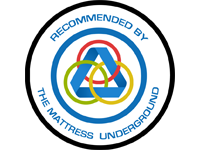How to Recycle - Even When Your City Doesn't Have a Program
on Jan 22, 2018
You can analyze your consumerism in light of reducing the amount of stuff you throw away, regardless of whether there is a recycling program or not.
This can be thought of under the umbrella of "recycling without the middle man." It can also be thought of as a blessing in disguise, because in this case the unfortunate reality of your city not having a recycling program, may actually lead you to a deeper and renewed commitment to live an eco-friendly lifestyle beyond the recycling bin.
So how can you reduce and/or revise your trash output?
The first way is to begin with the end in mind as a consumer. Make purchasing decisions based on waste reduction. This will also allow you to begin supporting eco-friendly companies by deciding to spend your money with companies that have these same type of priorities in mind.
Global Stewards offers a number of eco-tips on how to think more deeply along these lines. You can buy used whenever possible, from garage sales or thrift stores, so that your purchases are already an act of recycling to begin with. Donate whatever items you can down the line, thus completing the cycle.
You can also go on an "Eco-Sabbath," having one day a week where you make no new purchases.
Study how to create a Zero Waste Home, and carry out all the measures possible to effectively reduce your output.
Use dishes you can wash, reusable cups, and other repeat-use items, rather than throwaway paper and plastic items.
Re-purpose items that would normally be considered trash. Think of creative and practical ways to reuse items that are not necessary to throw out. Whether it's for arts and crafts-type projects, or for something more utilitarian, when you begin thinking in this way you will see the choices you've made reflected around your household, further reinforcing your commitment.
Another option, particularly when it comes to food items, is to take up composting.
A primary composting practice consists of using or creating a composting box which utilizes brown and green (think "natural") waste materials, along with some form of moisture, in order to facilitate faster decomposition of organic or mostly organic substances and materials.
Right from the start, you can start your recycling activities by constructing your own compost bin from recyclable materials!
Look for independent recycling centers and contractors in your area.
One other proactive initiative you can take is to go online and find the "recycling center nearest to you. The website Earth911 has an easy search feature where you can find the recycling centers" that are closest to you. "Once you've found a recycling center, ask them for information on which items they will accept."
You can also take the time to advertise anything you might see as junk, no matter how minuscule, as a free item on online sale websites or in Facebook Marketplace, or offer it on a neighborhood service like Nextdoor. You never know who might need it for one of the arts and crafts type projects mentioned earlier, and it's another way to get to know more people in your community, who may become your allies in creating a greener neighborhood.
The same holds true for disposing of larger objects you no longer have need of. Offer them for free to someone who might be able to repurpose them, and you will lessen your negative environmental impact.
Additionally, if you have an old mattress you want to get rid of, you can try Bye Bye Mattress, which will help you find a local recycling center facility even if you don't have a city-sponsored one.
One other thing to regularly do in a situation where you need to dispose of a large item, is to simply google the item type + recycling + your location (for example dresser + recycling + Denver). You will likely find a number of creative options you might not have thought of otherwise.
Lastly, you can and should write or call your city representatives to change the situation.
Whether you see yourself as an activist or not, sometimes a small amount of initiative by conscientious citizens can help change an undesirable status quo.
For example, some cities will be easy to appeal to with the fact that other cities regularly save money through these programs. One city focused their program around an aim "to save the city money: Every ton of recyclable waste that's diverted from trash can to recycling bin saves the city $105.. That's because the city pays to get its garbage removed, but gets paid for recycling."
Gather some facts around the benefits of recycling not just in regards to the environment, but for the benefits to constituents (i.e. the voters!) and for the bottom line of the city government as well.
If you're looking for a guide on how to get this type of initiative going, and how to get the recycling program itself off the ground, the Environmental Protection Agency has all that information prepared and ready.
Now that you have some ideas and information, you can be sure not to let your city's lack of enlightenment prevent you from being an eco-friendly citizen in the meanwhile.
← Older Post Newer Post →







Comments